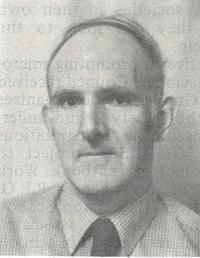Professor Ian Wishart Sutherland: a tribute
10 February 2025
The Microbiology Society was saddened to learn of the recent death Ian Wishart Sutherland, a long term member of the Society, having first joined in 1960.

Ian had been both an undergraduate and a PhD student at Edinburgh University before taking up a lectureship in the Bacteriology Department. He was one of a small group who in 1966 founded the University’s Microbiology Department. When the department disappeared into a larger faculty as part of a reorganisation of the university, Ian wrote that “reports of the demise of microbiology are definitely premature”. Although he was at Edinburgh throughout his career, Ian had sabbaticals and extended periods of research in Sweden, Germany and the USA.
His research interests were primarily in bacterial cell surfaces, both from the fundamental biological angle and also from the point of view of biotechnological exploitation. His research in the use of bacterial polysaccharides for enhanced oil recovery was extensively supported by the UK Government’s Department of Energy.

Ian joined the Council of what was then the Society for General Microbiology in 1983 and took a leadership role a few years later when he was appointed the inaugural holder of the newly created post of Professional Affairs Officer. The role was created because “Council has become increasingly concerned with public issues of professional concern to microbiologists,” and in the years that followed, it was repeatedly observed that these issues were taking a greater and greater prominence in the Society’s work, in part because of Ian Sutherland’s energy and commitment. He had been an obvious choice for the role having shown significant commitment to training, teaching and promoting the careers of young scientists at Edinburgh. He held the post of Professional Affairs Officer for five years, during which he worked hard to ensure that the voice of early career microbiologists was prominent. In 1991, he conducted a survey of postgraduate members, discovering that those who wished to stay in academia favoured molecular biology and biochemistry whereas those who intended to move away from research preferred environmental areas. While those committed to research careers favoured the UK, and the USA, the results of the exercise found that “despite the prospect a unified European Market in 1992, very few intended to work in Europe”.

One of Ian’s interests was science policy and he wrote a regular “Westminster Column” about what was going in Parliament of relevance to the Society’s members, observing in the 1990s that “a few MPs do appear to link higher education to the economic performance of the country, but unfortunately they do not appear to be able to exert much influence on their colleagues” when it came to funding settlements.
Ian Sutherland was prolific in publishing in the Society’s journals and in 2001, the year he retired, he published a sole-authored review on biofilm exopolysaccharides, which has garnered over 1,500 citations (Microbiology (2001), 147, 3–9).
On his retirement almost a quarter of a century ago, Ian was remembered as “an extremely helpful colleague to many, freely giving advice and support”.
